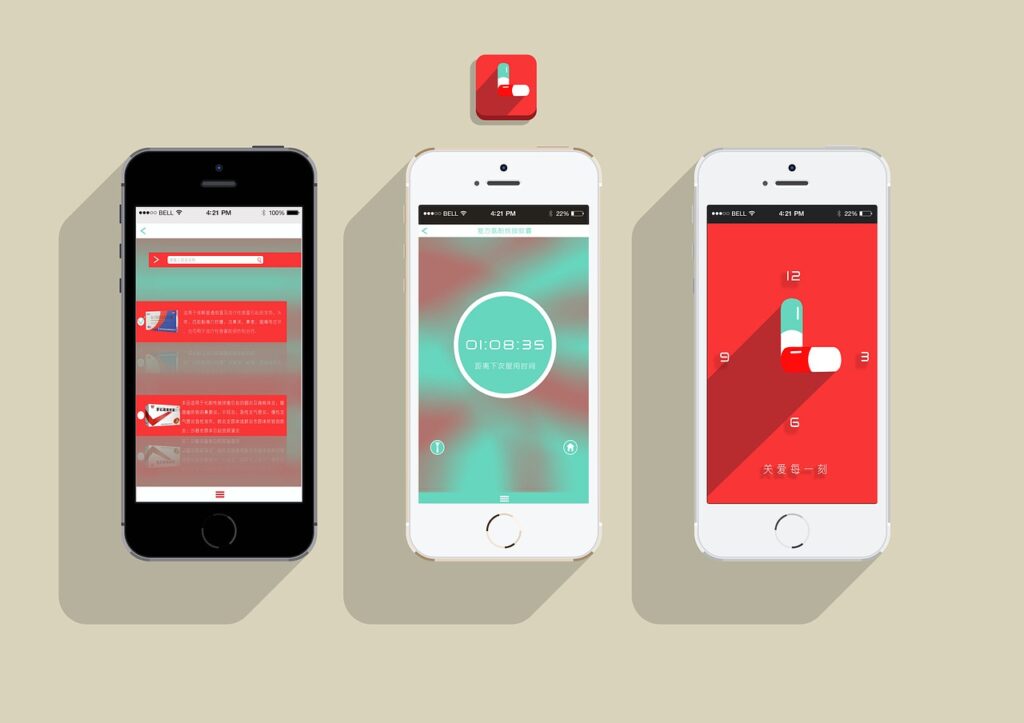Mobile App Trends: Embracing Innovation in the Digital Age – In today’s fast-paced digital landscape, mobile apps continue to revolutionize the way we live, work, and interact. From simplifying daily tasks to providing entertainment on the go, mobile apps have become an integral part of our lives. As technology evolves, so do mobile app trends, shaping the future of app development and user experiences.
Mobile App Trends: Embracing Innovation in the Digital Age

Introduction to Mobile App Trends
Mobile apps have transformed how businesses engage with customers, streamline processes, and deliver services. With the rapid evolution of technology, staying updated with the latest mobile app trends is crucial for developers, businesses, and consumers alike. Understanding these trends not only ensures relevance but also opens up opportunities for innovation and growth.
User Experience (UX) Focus
In the ever-expanding app market, user experience (UX) remains paramount. Mobile apps that prioritize intuitive navigation, seamless interactions, and visually appealing designs tend to outperform competitors. User-centric approaches, such as user testing and feedback loops, help developers fine-tune their apps to meet user expectations effectively.
Personalization and Customization
Personalization is key to creating memorable app experiences. By leveraging user data and preferences, mobile apps can deliver tailored content, recommendations, and services. From personalized product recommendations in e-commerce apps to customized workout plans in fitness apps, personalization enhances user engagement and satisfaction.
Integration of Artificial Intelligence (AI)
Artificial Intelligence (AI) is revolutionizing mobile app development by enabling advanced features such as predictive analytics, natural language processing, and virtual assistants. AI-powered chatbots enhance customer support, while machine learning algorithms optimize app performance and user interactions. Integrating AI enhances app functionality and efficiency.
Augmented Reality (AR) and Virtual Reality (VR)
Augmented Reality (AR) and Virtual Reality (VR) technologies are reshaping the way we experience mobile apps. From immersive gaming experiences to interactive shopping platforms, AR and VR offer limitless possibilities. Mobile apps leveraging these technologies provide users with engaging and immersive experiences, driving higher levels of user engagement and retention.
Internet of Things (IoT) Integration
The Internet of Things (IoT) ecosystem continues to expand, connecting various devices and systems seamlessly. Mobile apps act as a central hub for controlling IoT devices, monitoring home security, and managing smart appliances. Integrating IoT capabilities into mobile apps enhances convenience, efficiency, and automation in users’ daily lives.
Focus on App Security
With increasing concerns about data privacy and cybersecurity, app security is non-negotiable. Mobile apps must implement robust security measures to protect user data from cyber threats and unauthorized access. Secure authentication methods, data encryption, and regular security updates are essential for maintaining user trust and safeguarding sensitive information.
Cross-Platform Development
Cross-platform development allows developers to create apps that run smoothly on multiple operating systems and devices. Frameworks such as React Native and Flutter streamline the development process, reducing time-to-market and development costs. Cross-platform apps ensure wider reach and accessibility without compromising on performance or user experience.
E-commerce Integration
The proliferation of e-commerce has fueled the demand for mobile shopping apps. Features like one-click purchasing, personalized recommendations, and secure payment gateways enhance the shopping experience for users. Mobile apps enable businesses to reach customers anytime, anywhere, driving sales and fostering customer loyalty.
Health and Wellness Apps
Health and wellness apps have gained traction as people prioritize their physical and mental well-being. From fitness tracking and meditation apps to nutrition planners and symptom checkers, mobile apps empower users to take control of their health. These apps offer personalized insights, guidance, and motivation, encouraging users to adopt healthier lifestyles.
Sustainability and Eco-Friendly Apps
As environmental consciousness grows, so does the demand for sustainability-focused mobile apps. Apps that promote eco-friendly practices, sustainable living, and carbon footprint tracking empower users to make environmentally responsible choices. From recycling guides to carbon offset calculators, these apps contribute to a more sustainable future.
Gamification in Apps
Gamification techniques, such as rewards, challenges, and leaderboards, add an element of fun and competition to mobile apps. Gamified apps motivate users to engage more frequently and deeply, driving user retention and loyalty. By incorporating game mechanics into apps, businesses can increase user engagement and achieve their desired outcomes.
Accessibility Features
Accessibility is a fundamental aspect of app design, ensuring inclusivity for users of all abilities. Mobile apps should adhere to accessibility standards and guidelines, making them usable by people with disabilities. Features such as voice commands, screen readers, and adjustable fonts enhance accessibility and usability for everyone.
Voice Technology Integration
Voice-enabled mobile apps offer hands-free convenience and accessibility, catering to users’ preferences for voice interactions. Voice assistants like Siri and Google Assistant facilitate tasks such as voice search, voice commands, and dictation. Integrating voice technology enhances user experience and enables seamless interactions with mobile apps.
Conclusion
The landscape of mobile app development is constantly evolving, driven by technological advancements and changing user expectations. By embracing emerging trends such as AI integration, AR/VR experiences, and personalization, developers can create innovative apps that captivate and delight users. As mobile technology continues to reshape industries and societies, staying abreast of trends is essential for success in the competitive app market.
5 Unique FAQs
1. How do mobile app trends impact businesses?
- Mobile app trends influence how businesses engage with customers, innovate their products/services, and stay competitive in the market. Adapting to trends ensures relevance and drives growth.
2. What role does personalization play in mobile apps?
- Personalization enhances user engagement by delivering tailored content, recommendations, and experiences based on individual preferences and behavior, ultimately fostering customer loyalty.
3. Why is app security important in the age of cyber threats?
- With increasing concerns about data privacy and cybersecurity, robust app security measures are crucial for protecting user data from breaches, fraud, and unauthorized access, maintaining trust and integrity.
4. How can businesses leverage cross-platform development for their apps?
- Cross-platform development allows businesses to reach a broader audience by developing apps that run seamlessly across different devices and operating systems, optimizing resources and enhancing user accessibility.
5. What are some future trends in mobile app development?
- Future trends in mobile app development may include advancements in AI and machine learning, further integration of AR/VR technologies, enhanced focus on app sustainability, and continued innovation in user experience design.




